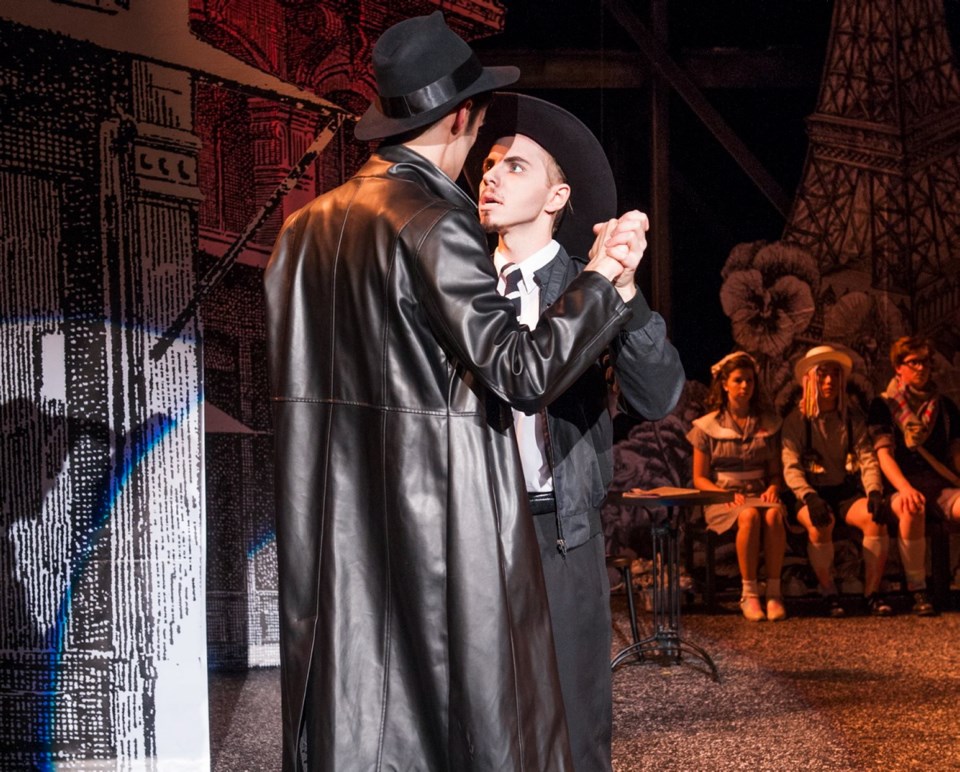What: The Madwoman of Chaillot
When: Runs through Nov. 25, 8 p.m. (matinées at 2 p.m.)
Where: Phoenix Theatre at the University of Victoria
Tickets: $15 to $26
More info:
Rating: Three stars (out of five)
The Madwoman of Chaillot, Jean Giraudoux’s satirical fantasy written in Nazi-occupied France in the 1940s, is a tempting play.
The large cast of colourful characters and absurd plot are a rare malleable clay for interesting staging and direction.
And greedy corporate types willing to destroy Paris to dig for oil, a subversive stand-in for the Nazi occupiers of the time, are convenient villains five decades later in the age of climate change and pipeline protests.
The Phoenix Theatre program makes a valiant effort to resuscitate the play — groundbreaking in its time. But the subversive and satirical elements don’t quite make the transition to modern times and the characters are somewhat lost to caricatures of the past. This is a challenge when the plot is not that interesting.
There are some highlights to this student production of the play, directed by University of Victoria professor Conrad Alexandrowicz.
Alexandrowicz specializes in physical theatre and makes excellent use of movement, especially in the first half of the play.
In the café, a table of bad men plots to destroy the city out of greed, rolling on chairs as they choreograph their scheme — wearing bizarre monochromatic costumes (including some Hitler moustaches).
One is a so-called prospector who comically sniffs out oil in the Paris water. He’s played by Chase Hiebert, a Phoenix graduate and current writing student who is convincing and fun as the maniacal cowboy.
The cast of vagabonds and artists who hang out in the café move around the stage like a chorus, pausing to pose in vignettes.
The “madwoman” is Countess Aurelia (played by fourth-year student Sarah Jean Valiquette), who owns the café and takes it upon herself to save Paris by luring the wicked ones into her basement to “evaporate” after a faux trial by her friends. The extermination image is odd, given her Nazi-like foes.
Perhaps her righteousness is her “madness,” after all. She congratulates herself, saying: “Nothing is ever so wrong in this world that a sensible woman can’t set it right in the course of an afternoon.”
The set is a fantastic version of a café in Paris, built with massive black and white illustrated backdrops and a stage scattered with snow. Patrick Du Wors’ design also includes a gold staircase, and the cellar to hell is interesting.
It’s valuable on a cultural and educational level for student theatre to revisit old plays, but they should be carefully chosen and staged to make best use of the energy and interests of youth — something that could have been better done here.



